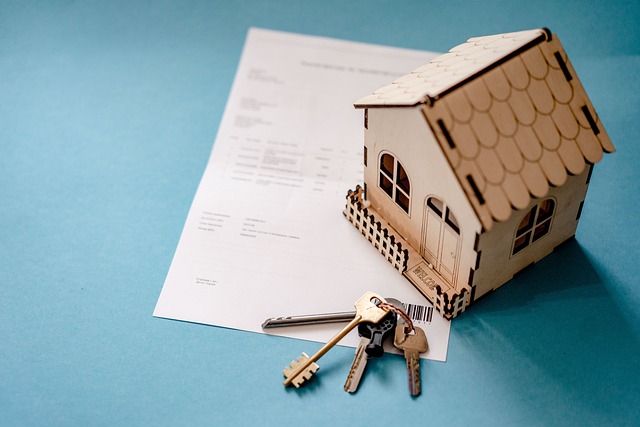When navigating the complexities of home insurance, understanding your deductible options is crucial. A deductible represents the initial portion of a loss that you cover before your home insurance policy’s benefits are activated. Selecting an appropriate deductible balance between coverage affordability and financial protection is key. This article delves into various facets of deductibles within home insurance, including their impact on home insurance quotes, property insurance rates, personal liability coverage, and home contents insurance. By evaluating your financial situation and risk tolerance alongside these factors, you can make an informed decision that aligns with your overall home insurance needs and budget.
- Understanding Your Home Insurance Deductible Options
- Factors Influencing Your Choice of Deductible in Home Insurance Quotes
- Analyzing the Impact of Deductible Levels on Property Insurance and House Insurance Rates
- Assessing Your Financial Health for Optimal Deductible Selection
- The Role of Deductibles in Personal Liability Coverage Within Home Insurance Plans
- Exploring Home Contents Insurance: Deductible Considerations and Savings Opportunities
Understanding Your Home Insurance Deductible Options

When navigating home insurance coverage, comprehending your deductible options is crucial for making informed decisions about your policy. A deductible is the fixed amount you agree to pay out-of-pocket before your insurer steps in to cover losses or damages to your property. Typically, selecting a higher deductible will result in lower house insurance rates, as you are assuming more of the risk. Conversely, opting for a lower deductible means that you’ll pay less upfront in the event of a claim, but this choice often comes with higher premiums throughout the year. It’s essential to balance these factors against your financial situation and tolerance for risk.
For those seeking comprehensive protection, it’s important to consider not only the deductible applicable to structure-related claims but also for personal liability coverage and home contents insurance. The latter covers the loss or damage to your belongings, and having an appropriate deductible here can also influence your overall house insurance quotes. When evaluating your options, remember that a lower deductible for contents may be paired with a higher one for the structure, or vice versa, depending on your chosen property insurance plan. It’s advisable to review your policy annually and adjust your deductibles as necessary to align with any changes in your financial circumstances or risk tolerance. This ensures that you maintain adequate coverage without overburdening yourself with costs should an incident occur.
Factors Influencing Your Choice of Deductible in Home Insurance Quotes

When selecting a deductible for your home insurance policy, several factors should be considered to align your coverage with your financial capabilities and risk tolerance. Firstly, assess your ability to cover the deductible amount in the event of a claim. A higher deductible typically correlates with lower house insurance rates because you are taking on more responsibility for smaller claims. However, ensure that the deductible is affordable for you without causing undue financial strain. In this context, property insurance becomes a critical component of your coverage, safeguarding the actual structure of your home against damages or loss.
Secondly, consider your personal liability coverage needs. If you have significant assets to protect, or if there’s a high risk of legal action due to your activities (like hosting frequent events), opting for a lower deductible might be advisable. This is because higher deductibles could expose you to greater potential out-of-pocket expenses in the event of a liability claim. Additionally, the value of your home contents insurance should also influence your decision. If you own expensive personal items or have a considerable amount of belongings, a lower deductible can provide peace of mind knowing that you won’t face substantial costs when making claims for these items. Ultimately, balancing the cost of your premiums with the level of protection you require is essential in selecting the most appropriate deductible for your home insurance coverage.
Analyzing the Impact of Deductible Levels on Property Insurance and House Insurance Rates

When considering home insurance coverage, the deductible level plays a pivotal role in determining both the cost and the scope of protection provided. Opting for a higher deductible on your property insurance can lead to significantly lower house insurance rates. This is because with a higher deductible, the insured assumes more financial responsibility in the event of a claim, thereby reducing the risk for the insurance company. Conversely, selecting a lower deductible means that the insurance company will cover a greater portion of claims-related costs, which typically results in higher premiums. It’s crucial to balance this by assessing your financial stability and the amount you can realistically afford to pay out of pocket without undue hardship.
Furthermore, deductible choices can impact various components of your home insurance policy, including personal liability coverage and home contents insurance. A higher deductible might be paired with broader personal liability coverage, offering peace of mind if you are found responsible for injuries or property damage to others. Similarly, your home contents insurance, which covers your belongings, may have a separate deductible that influences the premiums for this part of your policy. By carefully evaluating these factors and understanding how deductibles affect house insurance rates, you can make an informed decision that aligns with your financial situation and risk tolerance, ensuring comprehensive home insurance coverage without unnecessary expenditure.
Assessing Your Financial Health for Optimal Deductible Selection

When considering home insurance coverage, it’s crucial to weigh your financial health against your risk tolerance to select an optimal deductible. A higher deductible typically correlates with lower home insurance premiums, which can be beneficial for those managing their house insurance rates carefully. However, this means that you will be responsible for more significant out-of-pocket payments at the time of a claim before your coverage kicks in. On the other hand, opting for a lower deductible will result in higher premiums but can provide peace of mind, knowing you’ll have less financial burden if a claim is made. It’s essential to evaluate your personal financial situation; can you comfortably cover a larger deductible should an unexpected event occur? This assessment includes considering your overall financial reserves, your savings for unforeseen expenses, and the value of your home and its contents. Additionally, your choice will impact your property insurance and house insurance rates, as well as your personal liability coverage within the policy. It’s important to balance this decision with a comprehensive understanding of your needs and the level of protection you desire for your home and belongings. By comparing home insurance quotes from various providers, you can make an informed decision that aligns with both your financial capabilities and your risk tolerance. This due diligence not only ensures you’re adequately protected but also helps in managing your house insurance rates effectively over time.
The Role of Deductibles in Personal Liability Coverage Within Home Insurance Plans

When considering home insurance plans, understanding the role of deductibles within personal liability coverage is crucial for homeowners. Deductibles in the context of personal liability coverage refer to the amount you must pay out-of-pocket before your insurer steps in to cover claims related to bodily injury or property damage that you, a family member, or your pet may cause to others. Selecting an appropriate deductible for this aspect of your home insurance policy is a balance between managing risk and maintaining financial stability. A higher deductible can lead to lower home insurance premiums, reflecting the reduced liability risk to the insurer. Conversely, opting for a lower deductible means that your insurer will cover claims more quickly, but this often comes with higher premium costs. This choice should be informed by both your financial situation and your level of risk tolerance; if you have substantial savings to cover potential large out-of-pocket expenses, you might opt for a lower deductible. However, if you prefer to keep your house insurance rates low and can handle a larger financial responsibility in the event of a claim, a higher deductible might be more suitable. It’s important to compare home insurance quotes from various providers to understand how different deductibles affect your overall cost and coverage. Additionally, consider your personal liability exposure; if you have pets, frequent entertain guests, or live in an area where accidents are more likely, a lower deductible might offer greater peace of mind. Meanwhile, if you’re confident in your ability to manage such events, a higher deductible could be a cost-effective choice. Moreover, don’t forget that personal liability coverage can extend beyond bodily injury and property damage; it often also includes coverage for legal defense costs if you are sued due to such incidents. Ensuring you have adequate personal liability coverage within your home insurance policy is essential for comprehensive protection of your assets and well-being. When evaluating home contents insurance as part of your overall home insurance coverage, remember that the deductible applies to claims for loss or damage to your personal belongings as well. Carefully assessing your needs with respect to both personal liability and home contents insurance will help you make informed decisions about your deductible selection and ultimately secure a policy that aligns with your financial capabilities and risk preferences.
Exploring Home Contents Insurance: Deductible Considerations and Savings Opportunities

When considering home insurance coverage, understanding the role of a deductible is crucial for optimizing your financial protection and aligning it with your personal savings goals. A deductible represents the initial amount you agree to pay out of pocket before your insurer covers the rest in the event of a claim. Selecting a higher deductible for your house insurance rates can significantly reduce your premiums, which is an attractive option for those looking to save on home insurance quotes. This approach can lead to notable savings, especially if you have a solid emergency fund to cover the deductible amount in case of a claim. On the other hand, opting for a lower deductible will result in higher premium payments but can provide greater peace of mind, knowing that you won’t need to dig deep into your savings when an unexpected event occurs.
Another aspect to consider within home insurance coverage is personal liability coverage, which is often tied to the deductible selection. Higher deductibles might be paired with higher personal liability limits, offering more comprehensive protection if someone is injured on your property or if you are responsible for damage to another’s property. As you navigate the options for property insurance, it’s important to weigh the immediate cost against the long-term financial security that the right deductible and coverage levels can provide. Home contents insurance, which covers your personal belongings, also has deductibles that can influence your overall savings opportunities. Carefully evaluating your possessions, their replacement value, and your tolerance for risk will help you choose a deductible that ensures adequate protection for your contents while keeping your insurance expenses in check. By balancing these factors, you can tailor your home insurance coverage to suit your financial situation and ensure that you are neither overpaying nor underinsured.
When navigating home insurance options, it’s crucial to understand how deductibles influence both your financial commitment and the breadth of your coverage. Homeowners must carefully weigh their deductible choices within the context of their personal finances and risk tolerance. Selecting a higher deductible can lead to lower house insurance rates, potentially saving you money annually. However, this also means assuming greater immediate costs in the event of a claim. On the other hand, opting for a lower deductible will result in higher premiums but can provide peace of mind with less out-of-pocket expense at claim time.
By examining the interplay between deductible levels and home insurance quotes, policyholders can tailor their coverage to align with their unique financial situation and risk preferences. It’s equally important to consider how deductibles affect personal liability coverage within your home insurance plan, as well as home contents insurance, to ensure comprehensive protection for both your property and possessions.
Ultimately, the decision on selecting a deductible should be informed by a thorough analysis of your home insurance coverage needs, financial health, and desired level of risk exposure. By doing so, you can optimize your policy for cost-effectiveness while ensuring adequate protection against unforeseen events. For detailed guidance and personalized home insurance quotes, consult with an experienced insurance professional who can help you navigate these decisions effectively.



